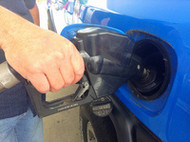Does Premium Gas Really Make a Difference?
Posted by J&B Tool Sales on 21st Jul 2015

When you fill up at the tank, do you choose regular or the more expensive “premium” gas? Gas prices vary depending on the state in which you live, fuel trade market, tax and other factors. However, you can expect to pay roughly $0.20 cents more per gallon for premium. That number may seem insignificant enough, but it can quickly add up for the average US driver. So, is premium gas really worth the extra $0.20 cents per gallon?
What is Premium Gas?
Unfortunately, there's no easy answer to this question. Any company – fuel or otherwise – can call their product “premium” and slap a higher price tag on it. According to a report published by Consumer Reports, however, premium gas has a higher octane rating than standard or mid-grade, often 91 or above. Standard fuel has an octane rating ranging between 85 and 87.
Another characteristic of premium gas is the presence of engine-cleaning additives, which are believed to help clean the engine.
The Truth About Premium Gas
Auto experts say the higher octane rating of premium gas benefits two types of cars in particular: high-performance cars, and older cars. Because its more resistant to preignition (a phenomenon that occurs when fuel burns uncontrollably), premium gas offers the highest level of efficiency in performance vehicles with hot engines.
Premium gas may also extend the life of older vehicles due to its above-normal octane rating. Kelly Blue Book explained that older cars and trucks tend to form carbon deposits within the cylinders; thus, increasing their combustion ratio and raising its octane rating (engines have octane ratings, too). And when the engine's octane rating goes up, it requires higher octane fuel.
Regarding the presence of additives, premium fuel doesn't really offer much in terms of benefits. Most modern-day cars and trucks are built with fuel-injection systems that automatically clean the engine, so premium fuel isn't going to help – not by much, at least.
Premium Recommended and Premium Required
Edmunds has created a list of 2010-2015 model vehicles in which the automaker recommends using premium gas, and another list of the same year vehicles in which the automaker requires premium gas. Check to see if your vehicle is listed on either of these lists. Failure to use premium gas in a vehicle that requires it could lead to accelerated engine degradation.
Related Reading: 5 Ways to Improve Your Car's Gas Mileage

